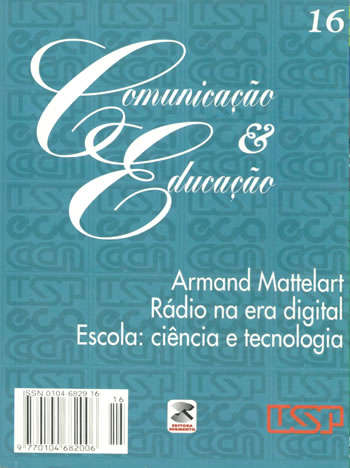Rádio: história e abrangência na era digital
DOI:
https://doi.org/10.11606/issn.2316-9125.v0i16p43-62Keywords:
radio, technology regulation, democracy, public serviceAbstract
The article deals with the radio, in its diverse aspects, as a means of mass communication which was established in the first half of this century and that has undergone great technological transformation. From the valve to the transistor, and to the digital signal - innovation that has been being implemented all over the World, making transmissions even more agile and of high quality -the radio has been and still is present in the most diverse of society's activities. Although it has been given less prestige than TV has, the radio has reached a great diversification in its frequency, allowing for FM, AM and MW programming broadcasts. The author emphasizes the different regulation characteristics and its exploration in Europe, U.S.A., and in Latin America. It discusses the convenience of having it as a service that is regulated by the State and/or public sector or even by the private sector. It also presents aspects for the democratic use of this means of communication, that has been a propaganda vehicle used by conservative (CIA) and revolutionary (Zapatista) forces, as well as by ethnic groups trying to preserve their identities.
Downloads
Downloads
Published
Issue
Section
License
I authorize the publication of the submitted article and soon the copyrights to the magazine, in the printed and electronic version, if it is approved after the evaluation of the reviewers.
I understand that readers may use this article without prior request, provided the source and authorship are mentioned. Readers are not authorized to use this article for reproduction, in whole or in part, for commercial purposes.

































